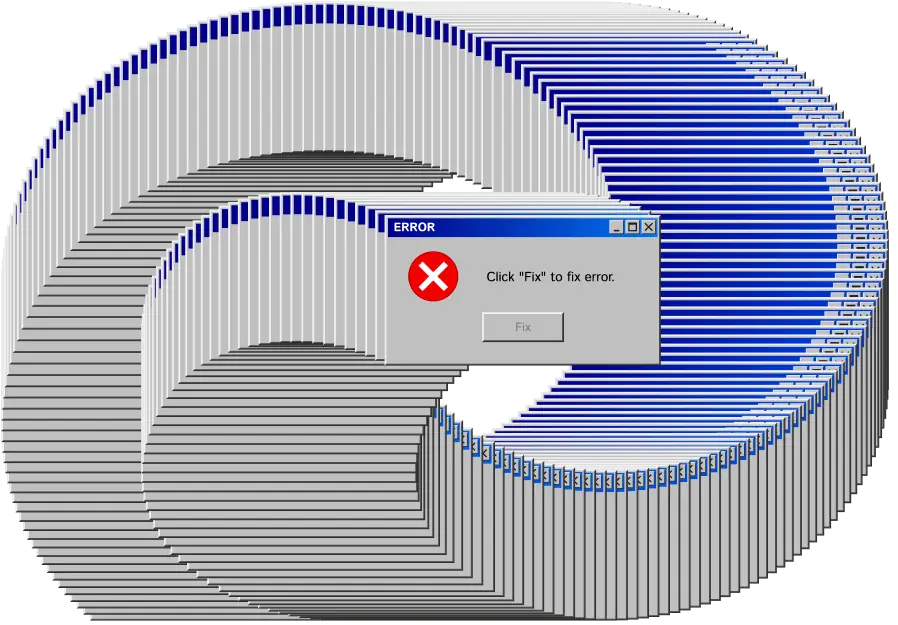
IT support for Irish SMEs is often put on the long finger—because if things seem to be working, why mess with them?
We’ve all said it:
“It’s working fine for now—let’s leave it.”
In business, there’s always something more urgent than upgrading your IT. It’s easy to push tech problems down the list. After all, if the computers turn on and the emails are flowing, why rock the boat?
But here’s the thing:
Doing nothing is never free.
In fact, sticking with outdated systems often ends up costing SMEs far more than making proactive improvements would have. It’s just that the costs are hidden—until they suddenly aren’t.
Why Is Doing Nothing So Expensive?
It might feel like you’re saving money by putting off IT upgrades. No new software to buy, no training sessions to run, no “disruption.”
But the hidden costs of inaction add up fast—and they usually appear when you least expect them.
Let’s break down the true cost of sticking with old systems.
1. Downtime: The Silent Business Killer
When your tech breaks, everything stops.
Servers crash. Files disappear. Systems freeze at the worst possible time (usually Friday at 4:59pm).
The financial impact is real. According to industry reports, Irish SMEs can lose up to an average of €2,500 per hour of downtime. And that’s just the immediate cost. What about the customer who goes elsewhere because you couldn’t deliver on time? Or the staff member stuck working late to catch up?
Downtime affects:
- Productivity
- Customer relationships
- Staff morale
- Your bottom line
And the older your systems get, the more often downtime happens.
2. Cybersecurity Risks Are Growing
Old systems are easy targets for cybercriminals. Hackers love businesses running on outdated software because the vulnerabilities are already mapped out for them.
Hiscox reports that 41% of Irish SMEs experienced at least one cyberattack last year, with average recovery costs exceeding €10,000.
Cyberattacks aren’t just a big-business problem anymore. In fact, SMEs are often easier targets because:
- Security patches haven’t been applied
- Staff aren’t properly trained
- Old systems can’t handle modern security threats
One phishing attack, ransomware infection, or data breach could cause weeks of disruption—or worse, lead to fines under GDPR.
3. Staff Productivity Is Suffering
Old IT systems slow your team down.
We’ve all been there: staring at a spinning wheel while waiting for a system to load, rebooting devices constantly, or sending three emails just to get the “latest version” of a file.
It’s frustrating, it wastes time, and it leads to burnout. Studies show that 67% of Irish workers say they’re more likely to stay in a role if the technology helps them do their job efficiently.
In short, clunky tech can make good people leave.
4. You’re Missing Out on Opportunities
Modern IT systems don’t just prevent problems—they create opportunities:
- Automating time-consuming tasks
- Collaborating in real time from anywhere
- Accessing real-time data to make better decisions
- Scaling your business without scaling your tech headaches
If your current IT can’t support these things, you’re leaving money on the table. Meanwhile, your competitors are moving forward.
5. Reactive IT Costs More Than Proactive IT
Fixing problems when they break is always more expensive than preventing them.
If your IT provider is constantly responding to emergencies, you’re stuck in a cycle of:
- Emergency call-outs
- Expensive fixes
- Lost time
- Frustrated employees
Proactive IT might feel like a bigger investment up front, but in the long run, it’s far cheaper—and much less stressful.
Why SMEs Put Off IT Upgrades (And Why That’s Dangerous)
We get it. The idea of modernising your systems can feel daunting:
- “We don’t have time for that right now.”
- “It sounds expensive.”
- “What if it disrupts the business?”
- “Let’s just wait until next year.”
But here’s the reality: waiting usually makes the problems worse. By the time you’re forced to upgrade, it’s often because something critical has broken. And fixing things in crisis mode is always more expensive.
The Irish SME Landscape Is Changing
Flexible working, cybersecurity threats, and cloud collaboration have completely changed how businesses operate. Yet many SMEs in Ireland are still running on systems designed for the pre-pandemic world.
- 74% of Irish SMEs now offer hybrid working (Grant Thornton)
- 70% of Irish SMEs admit they’re still using legacy systems that aren’t fit for purpose (ISFA)
- 60% of cyberattacks in Ireland target small businesses (National Cyber Security Centre)
But here’s the reality: waiting usually makes the problems worse. By the time you’re forced to upgrade, it’s often because something critical has broken. And fixing things in crisis mode is always more expensive.
Conclusion: Doing Nothing Will Cost You More
It’s tempting to think, “We’ll deal with that later.” But in IT, later often means paying more—sometimes a lot more.
At Viatec, we make it simple to modernise your business without disruption. We’ll help you future-proof your workplace, protect your data, and keep your team happy and productive.
Don’t wait until something breaks. Let’s have a chat now about making your tech work for you—not against you.

